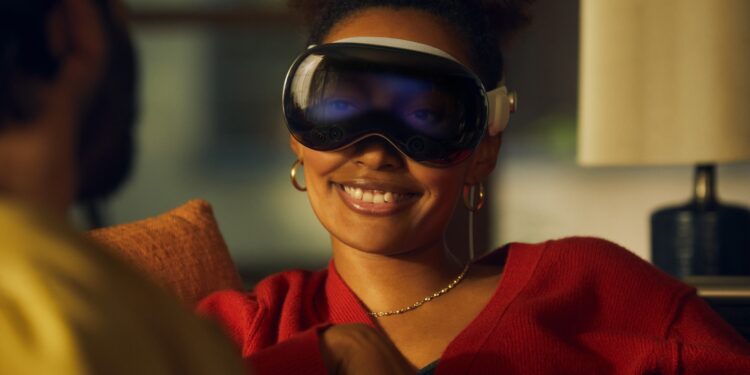In the rapidly evolving world of technology, it's not uncommon for companies to learn from each other and adopt features that prove innovative. A recent example of this is Meta, which filed a patent to copy the EyeSight feature from Apple's Vision Pro.
Meta, formerly Facebook, has become a dominant player in the virtual reality (VR) space in recent years. The company has made significant strides with its Quest headset line and now plans to further strengthen its position by integrating new features. A recently filed patent shows Meta's interest in Apple's EyeSight technology, although the feature is not without controversy.
The EyeSight function of the Vision Pro
The EyeSight feature of Apple's Vision Pro uses a scan of your face to display a virtual image of your eyes on an external display. When introducing this feature, Apple emphasized that it is designed to solve the problem of social isolation often associated with wearing VR headsets. Apple explained at the product launch:
We developed EyeSight because we knew that covering your eyes would take away a lot of what was possible when connecting with people.
However, the EyeSight feature received mixed reactions. Critics complained about the discrepancy between Apple's advertising images and the actual user experience. Many users found the feature unnecessary and unhelpful, which is why there is speculation that Apple may omit it from future models.
Meta files a patent for the same function
Patently Apple discovered recently filed a patent application from Meta that appears to be aiming to integrate a similar feature to EyeSight into their VR headsets. The patent, officially titled "Embedded Sensors in Immersive Reality Headset to enable Social Presence," suggests that Meta is considering a redesign of the Quest headsets or a completely new design to support this feature. An interesting detail of the patent is that Meta plans to integrate some sensors in the face interface that can also collect health data. This could differentiate Meta from Apple's EyeSight and potentially offer additional benefits.
Critical Review and Outlook
Meta's decision to copy a feature that was not well received by Apple users seems surprising at first glance. Nevertheless, Meta could try to avoid Apple's mistakes and improve the technology to offer users real added value. In addition, the integration of health sensors could be a unique selling point that sets Meta's headsets apart from the competition. Another goal of Meta could be to improve social interaction and presence in virtual environments, which is especially important in times of increasing digitalization and home office work. Whether this feature will appeal to users remains to be seen, however.
The future of VR headsets: Meta's ambitious plans
Meta's move to file a patent for the EyeSight feature of Apple's Vision Pro shows once again how competitive the VR market is. Although the feature has been viewed critically by Apple users, Meta could set new standards with improvements and additional features such as health sensors. It will be exciting to see how this technology develops and whether it is adopted by users. What is clear is that Meta is determined to continuously improve its VR headsets and pursue innovative approaches. Do you need useful tips for your Apple Vision Pro? Here you can discover everything you need to know about your new Apple device – enjoy reading! (Image: Apple)





